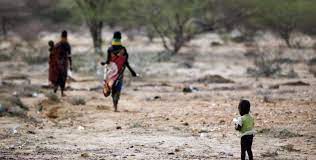Climate change is affecting the everyday lives of ordinary Angolans, according to 75 percent of respondents of a recent study by the European Investment Bank (EIB).
According to the first African edition of the EIB’s 2022 Climate Survey released this week, 57 percent of Angolan respondents also believe that the phenomenon was to be blame for their dwindling sources of livelihood.
The EIB, a key lender for climate action schemes around the world has been conducting similar large-scale climate surveys in countries in the European Union and the United States.
According to its Africa survey, renewable energy has been favoured as an alternative over fossil fuel to check the climate crisis by 84 percent of Angolans interviewed during the exercise.
The survey finds that although severe drought, rising sea levels, coastal erosions and extreme weather events in the form of floods or hurricanes are adversely affecting life in Angola, there is justifiable hope given the country’s potential to boost its renewable energy portfolio.
Thomas Östros, EIB’s vice-president is quoted in the survey as saying Angola ”is pursuing the development of small-scale off-grid projects, using both fossil fuels and renewable technologies such as solar, wind and small hydropower”.
He added: ”While hydropower accounts for almost two-thirds of Angola’s installed power generation capacity, new renewable energy sources have the potential to further expand the country’s generation capacity – and decrease its dependence on fossil fuels. Beyond renewables, the EIB has provided support to Angola to unlock the development of advanced telecommunications services and to improve access to drinking water, and is working towards increased health”.
WN/as/APA


